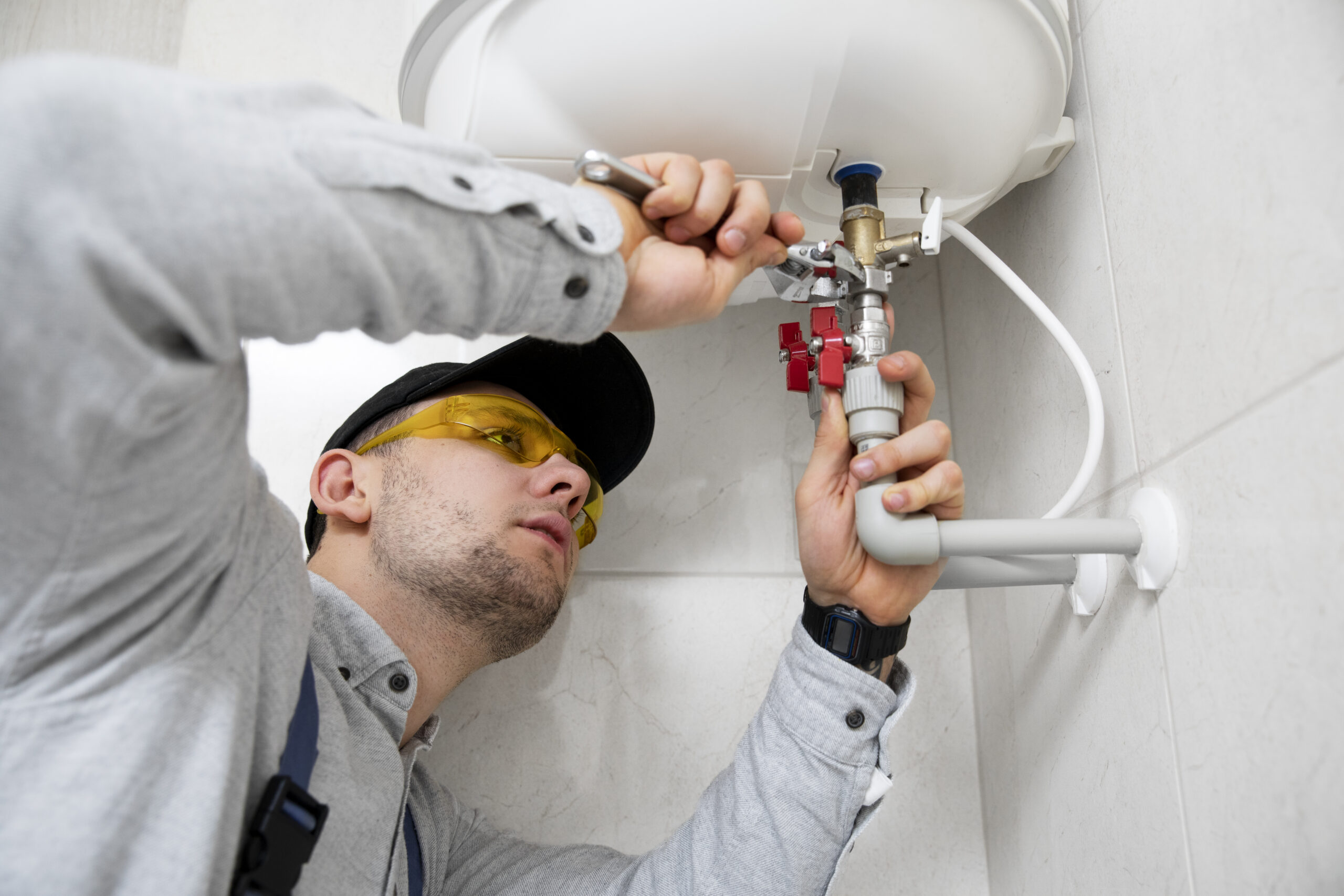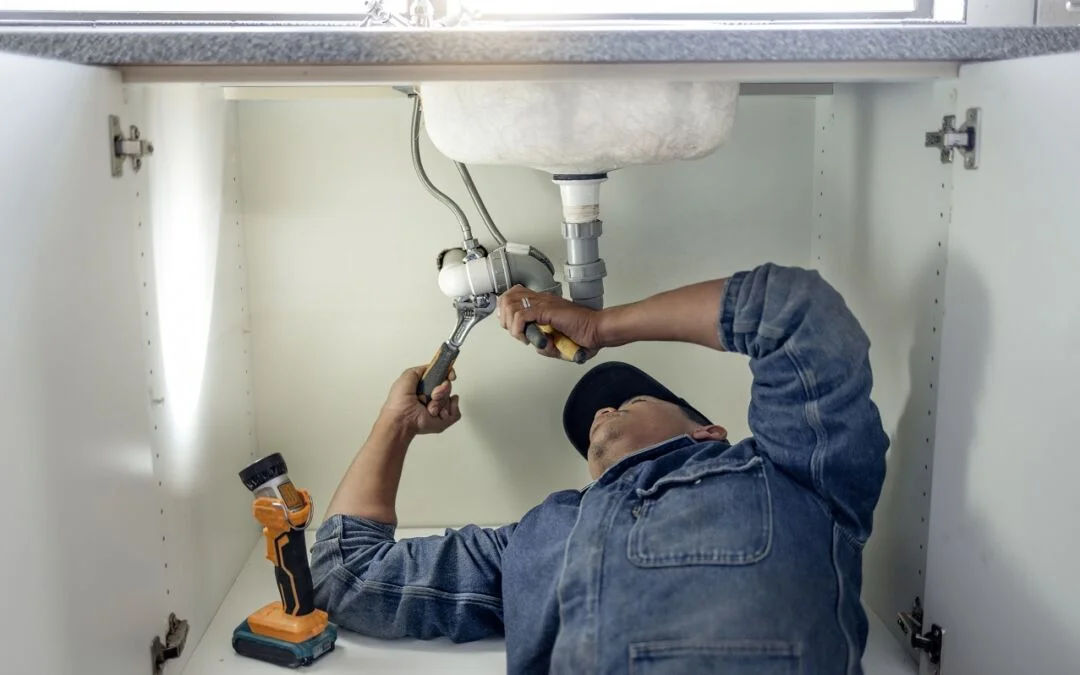Fast Tips for Plumbing Emergencies: Actions to Follow Until Support Arrives
Fast Tips for Plumbing Emergencies: Actions to Follow Until Support Arrives
Blog Article
Nearly everybody may have their personal theory about Expert Tips for Managing a Plumbing Emergency Until Help Arrives.

Plumbing emergencies can strike at any moment, causing tension and potential damages to your home. Whether it's a ruptured pipe, a blocked drain, or a dripping tap, knowing exactly how to handle the scenario until an expert plumber shows up can conserve you from additional complications. This post supplies essential emergency situation pipes pointers to assist you alleviate damage and restore control throughout a plumbing dilemma.
Turn Off the Water System
The initial step in any type of pipes emergency is to shut down the water. For local problems, such as a leaking faucet or commode, shut off the shutoff near the component. When it comes to a significant leakage or ruptured pipeline, find your home's main water shut-off valve and turn it off instantly. Recognizing the location of these valves in advance can conserve beneficial time during an emergency.
Shut Off Your Hot Water Heater
In specific emergencies, such as a burst pipeline, it's wise to turn off your hot water heater. This stops overheating or damage to the system when water quits streaming. Turn off the power supply to the hot water heater (electrical or gas) and allow it cool down to prevent possible dangers.
Momentarily Quit a Ruptured Pipeline
A burst pipeline can cause significant water damages in minutes. To reduce the issue:
Call a specialist plumbing professional instantly to address the trouble permanently.
Have an Emergency Pipes Kit
Prepare a fundamental pipes emergency kit to take care of small problems properly. Your package must include:
Having these devices handy can make a considerable difference in your capability to manage emergencies.
Unclog Drains Pipes Safely.
A clogged drainpipe can be a discouraging and untidy issue. Below's how to tackle it:.
If these methods do not work, avoid making use of extreme pressure, as it may get worse the blockage.
Handle Overflowing Toilets.
An overruning bathroom can create prompt chaos. Here's what you should do:.
Address Tiny Leakages with Short-lived Solutions.
Small leaks can rapidly end up being considerable troubles if left uncontrolled. Use these short-term repairs up until expert aid gets here:.
While these fixes aren't permanent, they can help minimize water loss and damage.
Deal With Frozen Pipeline Thoroughly.
In colder climates, frozen pipes are a common emergency situation. If you believe an icy pipeline:.
Know When to Call a Professional.
While quick fixes can aid briefly, specific plumbing issues call for instant expert attention. Call a plumbing if:.
Immediately getting in touch with a professional makes sure the issue is settled properly and avoids further complications.
Stop Additional Damages.
Taking fast action to decrease damage can save you time and money in the long run. Below's exactly how:.
Conclusion.
Pipes emergencies can be frustrating, but with the best understanding and devices, you can handle the circumstance efficiently until aid gets here. By switching off the supply of water, dealing with little leaks, and utilizing temporary repairs, you can decrease damage and maintain your home safe. Remember, these suggestions are temporary services; constantly seek advice from an accredited plumbing technician to handle the source of the issue. Prep work and quick reasoning are your finest allies in any plumbing emergency situation.
8 Helpful Tips for Managing Plumbing Emergencies at Home
If your plumbing system hasn’t failed once, wait for it because almost everyone has a story to tell. Sometimes, it could be simple emergencies such as a leaking pipe, a blocked cistern, or even a big burst pipe. In situations like this, you need to have some handy tips to save you some money and from possible damages.
Take care of minor issues early.
Sometimes, you could have avoided an emergency by taking proactive measures while it was still early. Some major plumbing emergencies can be a result of an ignored minor issue. We recommend that you have items like plumbing tapes and other related items. A plumbing tape can allow you to manage minor leaks before the plumber arrives.
Cut off the water supply.
This tip is essential in almost any type of leakage problem. For problems like minor leakages in the toilet or kitchen, turn off the supply that takes water to the affected pipes. If the leakage is a major pipe, you must shut off the supply valve to the entire building. This will help you avoid flooding your home and neighbors if you share a flat.
Know your plumbing system
Folks typically move into a new apartment without understanding the water supply around the building. This can prove disastrous if a water emergency arises and the plumber is far away. The previous tip will prove useless if you don’t practice this one. More importantly, know where your water shut-off valve is located – you’ll need that knowledge to prevent potential home floods.
Have some common handy tools
There are lots of plumbing emergencies that you can handle without hiring a plumber. That’s why you must keep some tools available always. Some tools that you can use to fix simple plumbing emergencies easily include plumbing tapes, screwdrivers, thread seal tapes, plungers, pliers, tape measures, and rubber gloves.
Insulate your pipes from cold
You’ll save yourself from many plumbing expenses if you protect your water pipes from the cold. This is because of the harmful effects that cold weather can have on your pipes. During winter, your pipes can burst from being overly expected to freezing temperatures. So, make sure insulators are there to keep the pipes working correctly.
Avoid practices that will clog your toilet.
Many people indulge in practices that can damage the plumbing system of the entire building. One of these is when they use their toilet to dispose-off garbage. They flush all kinds of things, such as paper towels, bandages, hairs, female sanitary products, etc., down the toilet. This will block your toilet in the long run, incurring unnecessary expenditures. Dump such waste in the trash instead.
Check your dials regularly.
Sometimes, there could be leakages in your home without noticing them in time. So, constantly monitor your water meter dial. If the dial is reading when there is nobody using water, this is an indicator that there is leaking. Check for leaks immediately. Call a plumber as soon as possible if you can’t find any.
https://www.constructionplacements.com/8-helpful-tips-for-managing-plumbing-emergencies-at-home/

As a fervent reader on Expert Tips for Managing a Plumbing Emergency Until Help Arrives, I assumed sharing that post was a great idea. Do you know about someone else who is sincerely interested in the niche? Take a moment to share it. Thank-you for your time invested reading it.
Rates Report this page